Many employees have faked a sickness to get out of a workday at least once. And if you must do so, it’s crucial to keep one cardinal rule in mind: don’t get caught.
Unfortunately, the social media age has made it easier for people to get busted, as this woman named Tina learned. What made things worse was that the exposure of her lie was due to her own doing. Some may call it a foolish blunder, while others may have harsher words for it.
Tina now has to answer to HR, as she also lost the trust of her coworkers.
Employees who get caught faking an illness are likely to do so because of their own doing

Image credits: Getty Images / Unsplash (not the actual photo)
A woman named Tina called in sick, only to be busted by her coworkers
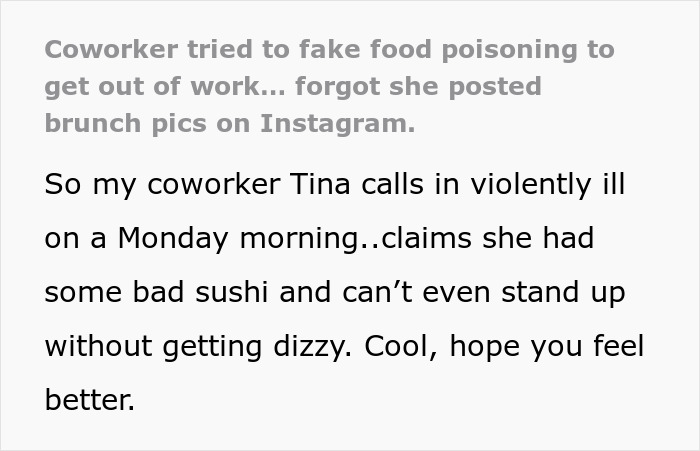
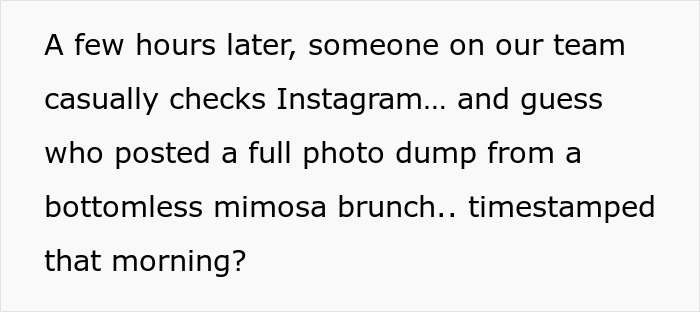

Image credits: Davey Gravy / Unsplash (not the actual photo)
She had apparently posted about her holiday on social media, seemingly forgetting that her colleagues would see it
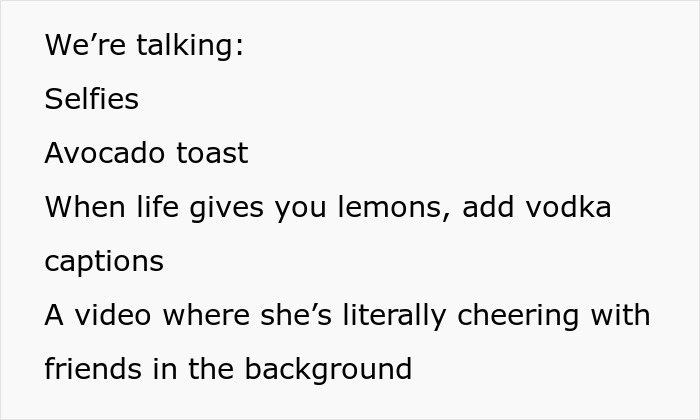


Image credits: pch.vector / Freepik (not the actual photo)
Tina’s mishap landed her in hot water, as she limited her social media exposure
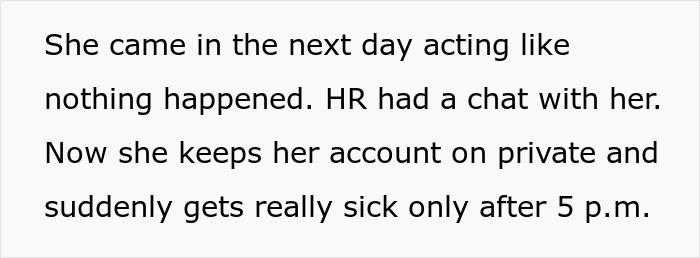
Image credits: justlunatits
Faking illnesses is more common than perceived, and it is prevalent among upper management
In 2022, Moneypenny conducted a survey of 1,000 Americans across different industries and states. The goal was to determine the number of people who called in sick for a fake illness and their reasons for doing so.
The findings revealed that 50% of Americans admitted to faking sick. But what’s interesting was that among those in the company roster, owners and CEOs were most likely to take an extra “sick day,” with 64% of them admitting to it while in their current role.
As for why, 29% of respondents stated that they needed to attend family events, such as weddings or christenings, while only 12% faked an illness to go on holiday.

Image credits: Getty Images / Unsplash (not the actual photo)
Here’s the kicker, though: while companies have the prerogative to terminate an employee for faking an illness, it’s not that simple. As employee relations expert Nicholas Hackenberg explains, a doctor’s confirmation is more than enough to prove an employee’s case, regardless of whether they were faking an illness or not.
“It can be at times difficult for business owners to manage, as the individual circumstances are not always necessarily in black and white,” Hackenberg told Employsure.
So, how do companies avoid these situations altogether? According to CareerBuilder, employers must support employees’ needs to maintain a healthy work-life balance, even if it means granting “mental health days.”
“Companies that promote a healthy work-life balance may see increased productivity, employee engagement, and satisfaction.”
As for Tina, she may have needed the vacation that badly. However, she could’ve saved herself the embarrassment by not foolishly posting her (mis)adventures on social media.
Commenters shared their insights, coming from both sides of the fence
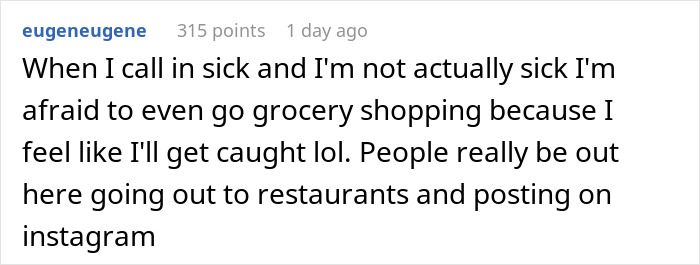



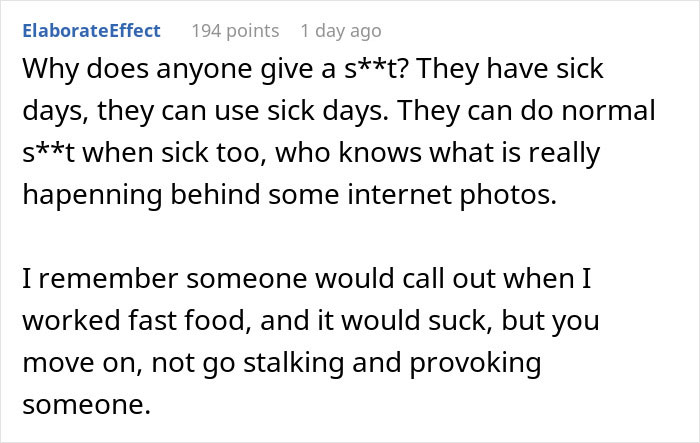
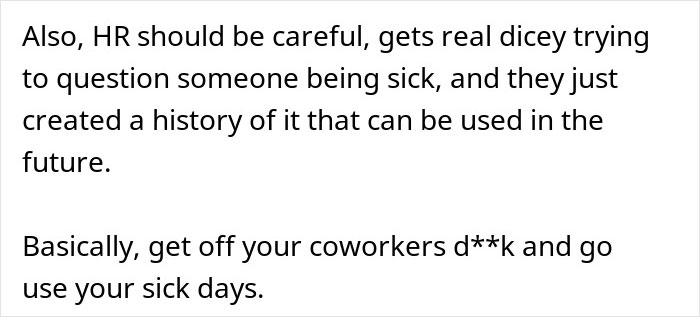
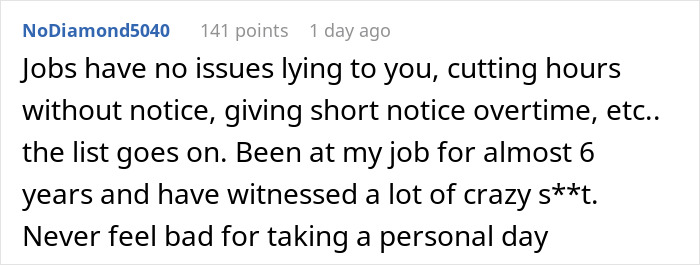
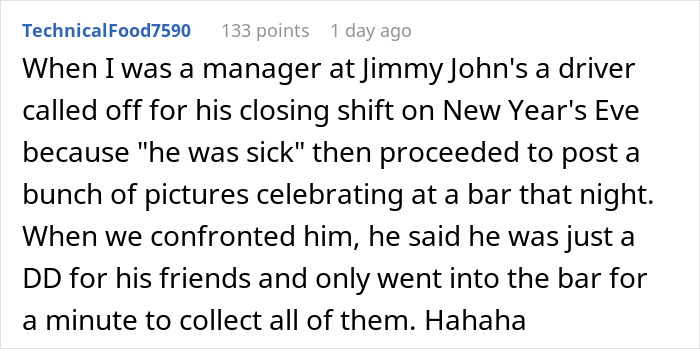
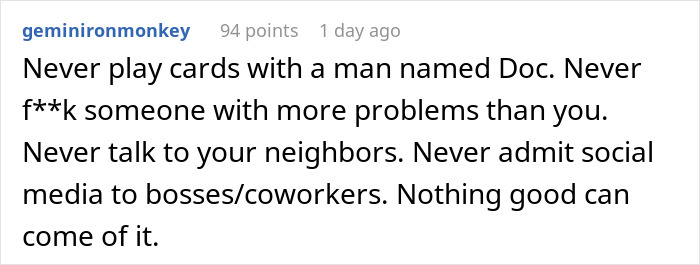
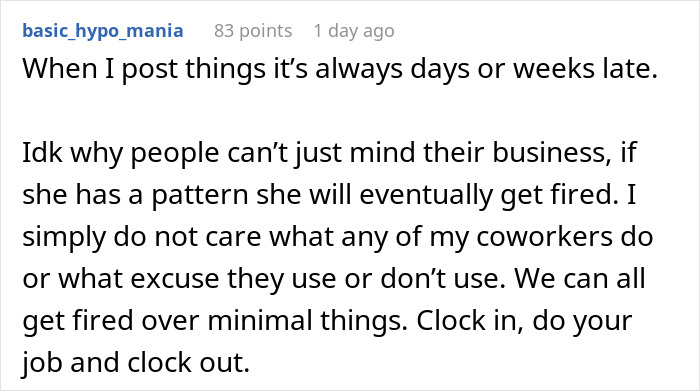
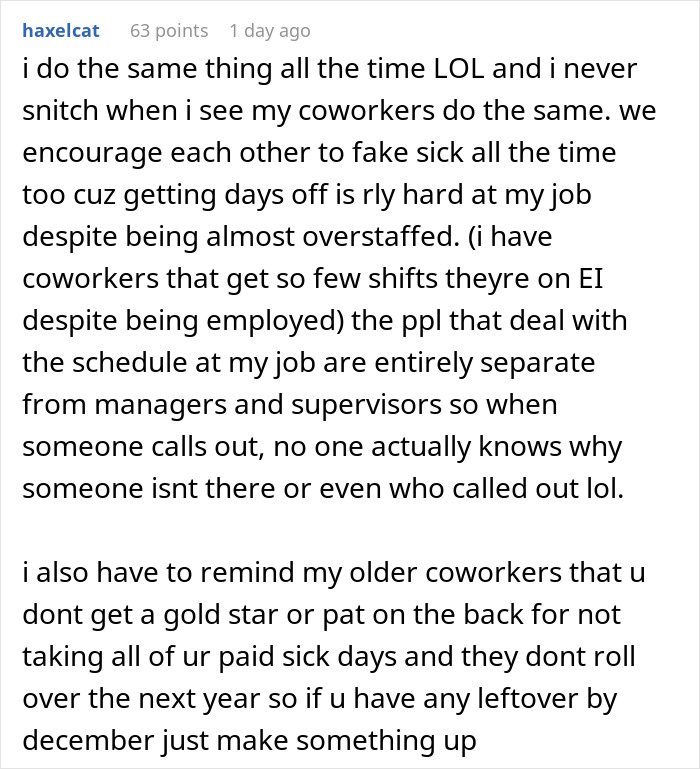

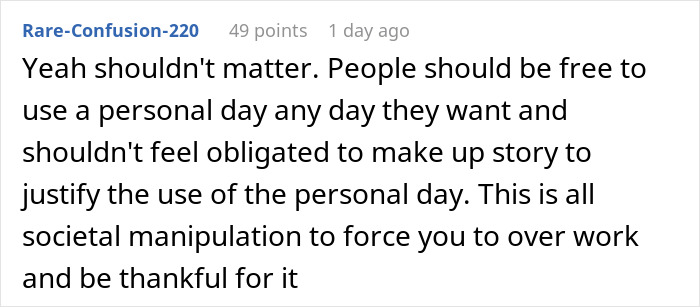
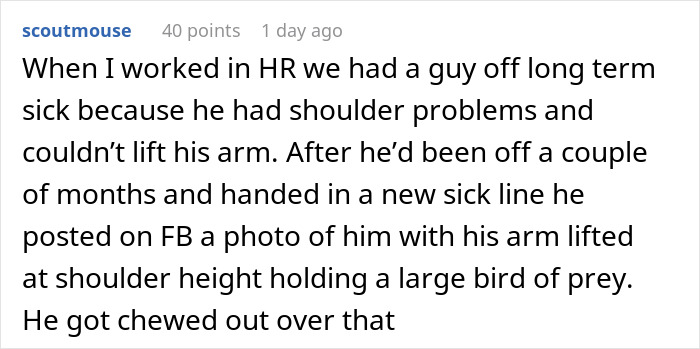

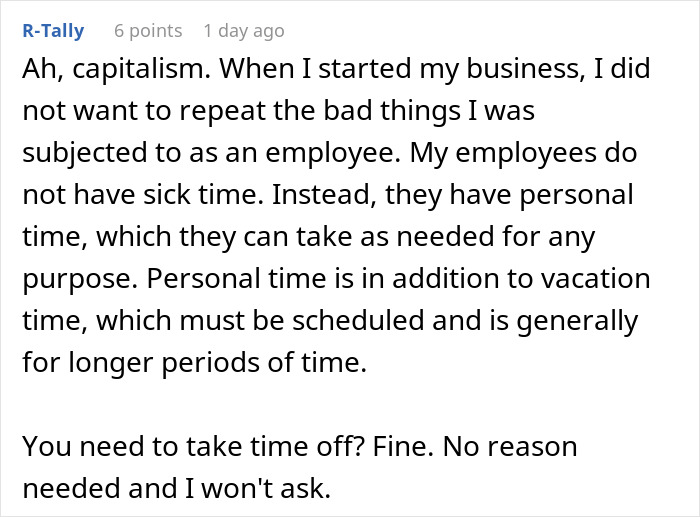
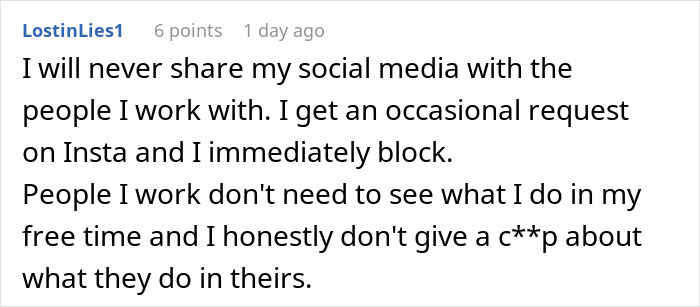








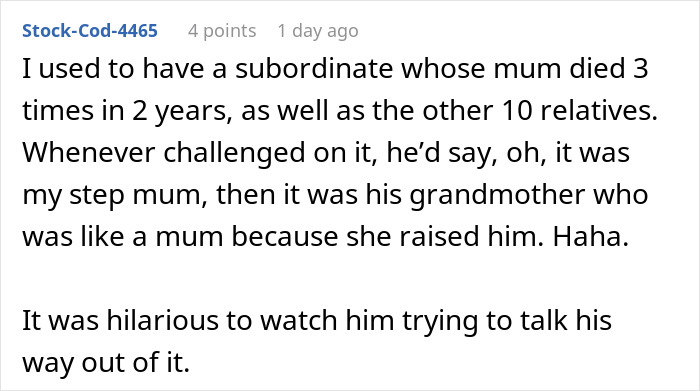
from Bored Panda https://ift.tt/6AB7n1T
via IFTTT source site : boredpanda